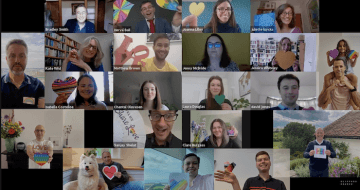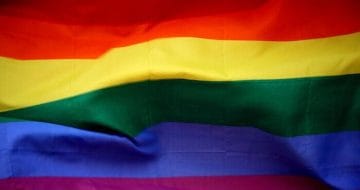Paralegal Isaac Orr shares his experience

As a new starter in a firm, it can be particularly daunting deciding if, and when, you are going to ‘come out’ to your colleagues. Something so subtle as implying you have a same-sex partner, or that you date people of a particular gender, can be a serious decision to make. You are vying for the approval of your team — and you don’t want any pre-conceptions to jeopardise your ability to get on with everyone in the team. It’s a consideration I had to make when beginning my career at Addleshaw Goddard (AG).
I think imposter syndrome can also affect this decision. As a graduate with no legal connections or a foot in the industry, I felt an extreme urge to prove to myself and others that I could thrive at the firm. Coming out felt like something that, going into my new role, could prejudice my ability to fit into the team and produce great work. Furthermore, you don’t want to rock the boat. I was worried that my lack of influence and a large network within the team would mean I would simply be too afraid to challenge someone on what they said to me if it made me uncomfortable.
Some people would argue that a person’s sexuality shouldn’t matter enough in the workplace, and it isn’t necessary to have to come out. Although I don’t believe that it is a necessity, sexuality and gender identity are key to being your authentic self at work — and everyone has a right to be able to do that. It’s also important to establish who you are to your team as soon as possible to avoid any awkward and embarrassing situations.
These are considerations I had to make before starting at the firm. I experienced that initial reluctance to be my authentic self and share my own interests/experiences as a queer person at first.
Thankfully, I had nothing to worry about — the firm had cultivated an environment that was respectful and allowed people like me to be comfortable in bringing their authentic selves to work. There were a few ways in which the firm demonstrated to me that I knew I could be open about my sexuality without fear of prejudice — and I could make the decision to come out safely.
Within my first week, I was introduced to a host of diversity and inclusion networks across the firm. These groups are set up to improve the experiences of different communities at the firm — including queer people. The networks are open to colleagues at all levels in all divisions. To see such a wide coverage of participants across the firm indicated to me that I could seek support from others in my decision to come out at the firm if I needed to. It was also reassuring to hear from other colleagues about their own experiences as queer people at the firm and the similar challenges we share coming out at work.
It was also really encouraging to see so many people around the firm wearing Pride lanyards from day one. It was a subtle yet powerful way of letting me know that I was welcome and would not be treated prejudicially by others.
I was also invited to attend diversity and inclusion training sessions as part of my induction into the firm. These are firmwide, compulsory talks that require all colleagues to think about how they would define inclusion. It also invites us all to think about systems of privilege and how they can play into the make-ups of firms. Holding these conversations in an open forum is a great way for all colleagues to recognise the role that they play as allies to queer people.
These are just some examples of ways that firms can help cultivate a community that is accepting and welcoming of all queer people — so much so that coming out didn’t feel as daunting as I initially thought it would be.
Isaac Orr is a litigation paralegal at Addleshaw Goddard.


